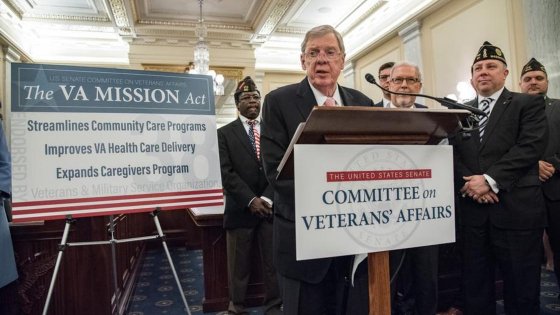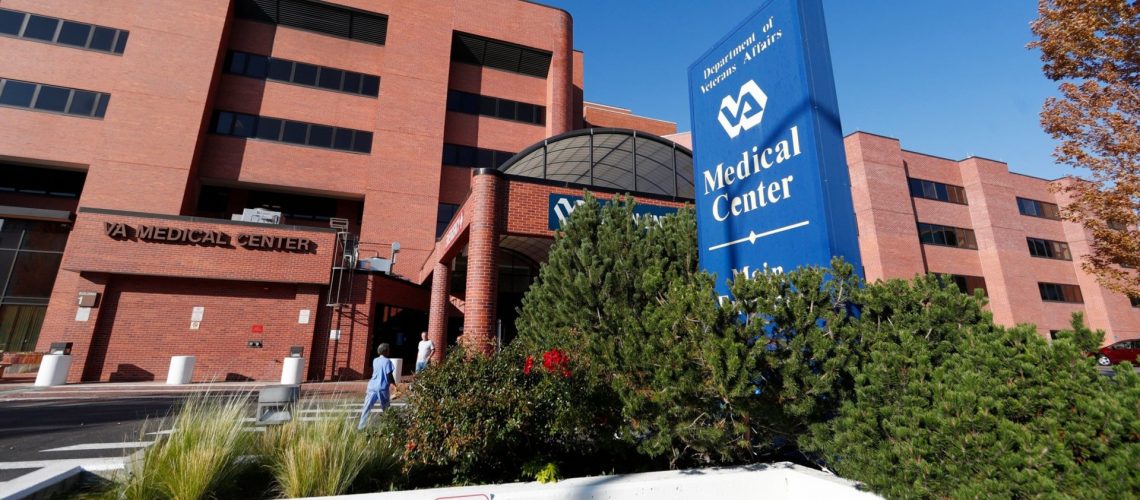When we look back at 2018 it’s clear that The Department of Veterans Affairs (the VA) was in a state of turmoil. Suffering through high turnover and a myriad of ineffective healthcare programs that were driving long wait times, limited access to direct care and confusing rules and regulations as to when and how private care could be accessed.
Then, in Summer and early Fall two things happened that led us to adopt a more hopeful outlook for the VA. First, Congress passed the MISSION Act as a replacement to the VA Choice Act. Second, Donald Trump signed a $200 Billion record VA budget for 2019. But these two events came with little follow up.
By the end of the year, Congress did not have a clear sense of how the VA was going to apportion the budget and what the guidelines and regulations would be for the new VA MISSION Act. Veterans did not know what private sector healthcare providers were available to them. This, as expected, left many veterans requiring health services with many questions, and no straight answers. Now it’s 2019 and the VA, and Congress is under the gun to provide clarity and guidance. That came just days ago and life for many veterans needing care just got a lot easier.
NEW RULES
The announcement that came from VA officials outlined that Veterans needing medical services who live as little as a 30-minute drive from a Veterans Affairs health care facility will instead be able to choose private care. This, of all the changes, is the most significant and goes a long way in fulfilling the Trump administration’s effort to fix years-old problems with the health system.

An early read by supporters regarding the new policy, which is likely to go into effect in June, will help veterans get faster and better care. Critics fear it will prompt the erosion of the largest integrated health care system in the country as billions of dollars are redirected to private care.
The goal of the new policy, officials say, is to provide veterans with easier, streamlined access to health care. Robert Wilkie, the secretary of veterans affairs, said in an interview that this is the most transformative piece of legislation since the G.I. Bill, and goes a long way to ensure the VA is operating as a 21st-century health care institution.
In addition to the 30-minute rule changes have been made to greatly reduce wait times. Current law lets veterans facing a wait of 30 days or more for an appointment at their closest V.A. facility seek private care, but under the new policy, that would be reduced to 20 days, and with the goal of 14, by 2020. Veterans will also be allowed access to walk-in clinics; however, those will require co-pays for treatment after a third visit. If seeking a specialist after the new policy takes effect, veterans must prove a drive of at least 60 minutes.
The impact of all this is significant. Together, the percentage of veterans eligible for what officials refer to as “community care” currently — roughly 8 percent of the seven million treated annually — would rise to between 20 and 30 percent, according to the Department of Veterans.
CONTROLLING THE COST OF HEALTHCARE UNDER THE MISSION ACT
Critics fear that private health care, which tends to have higher costs than government-provided care, will force the department to cut corners elsewhere. President Trump has instructed his cabinet secretaries to cut each department’s budget, and a prior budget agreement that lifted caps on spending is set to expire soon, leading many to wonder if Veterans Affairs will be able to pay private providers and maintain its own services.
However, a precedent exists. These new standards were developed after VA officials studied both the military’s insurance plan, Tricare Prime, which sets a lower bar for access to private care than the department has historically had and the Medicare Advantage program, which allows Medicare beneficiaries to buy private health insurance plans instead of using government-run fee-for-service Medicare.
The Department of Veterans Affairs will remain at the center of care coordination, and the private providers, who would be paid by the department at rates roughly comparable to the Medicare program, would not be permitted to cherry-pick the healthiest patients. About 26 percent of veterans pay a co-payment, and they would have similar co-payments at private doctors.
At American Veterans Honor Fund, we view this legislation as a giant step in the right direction. Healthcare is the most critical issue facing aging and new veterans today. We expect, like any legislation, the MISSON ACT policies will evolve based on the real-world needs of veterans. We will continue to support and monitor the legislation as it takes effect later this year.

